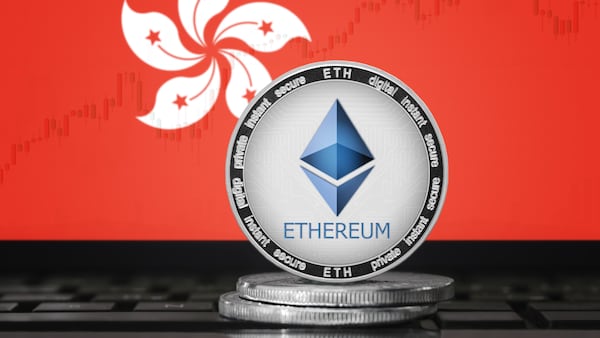- OSL head Patrick Pan tells DL News regulatory approval of ETH staking ETFs is likely.
- Debut of Hong Kong crypto ETFs only hit 40% of expectations, Pan said.
- Issuers and regulators are in negotiations over staking funds.
Hong Kong’s rollout of its spot Bitcoin and Ether exchange-traded funds may have been lacklustre, but regulatory approval for Ethereum staking could turn things around, according to Patrick Pan, the CEO of OSL.
OSL is a regulated digital assets platform in Hong Kong that worked with ETF issuers ChinaAMC and Harvest Global to launch the city’s first spot crypto ETFs.
In an interview with DL News, Pan said that fund issuers were in the midst of negotiating with the Securities and Futures Commission, or SFC, which regulates the markets in Hong Kong.
While the SFC has yet to send a clear signal it will approve staking products, he’s hopeful they’ll soon get the green light.
“There are a lot of different funds and crypto exchanges trying to negotiate with the SFC,” Pan said.
Staking ban
His words echo sentiments from Vivien Wong, partner at HashKey Capital, who recently expressed optimism that an ETH staking product could hit Hong Kong within the next six months. HashKey also launched spot crypto ETFs with Bosera in April.
The prohibition on staking in Hong Kong contrasts sharply with the more permissive environment elsewhere.
Staking is not only barred in Hong Kong for the ETFs but also on cryptocurrency exchanges; they cannot offer complex financial products for retail investors.
Hong Kong launched its first spot Bitcoin and Ether ETFs in April, following the US launch of a spot Bitcoin ETF in January.
The six ETFs have $353 million in assets under management, according to data from The Block.
Pan noted that Hong Kong’s market size meant the rollout was always going to be smaller than in the US, but it was still below OSL’s expectations.
“It only attained 30 to 40% of our estimates,” he said.
Growth of crypto ETFs
Several structural barriers also impede the growth of crypto ETFs in Hong Kong.
One major issue is the lack of access to mainland Chinese money. Furthermore, many Hong Kong investors and family offices have direct access to US markets, diminishing the local ETFs’ appeal.
Another significant obstacle is the readiness of intermediary channels, which are crucial for distributing ETFs.
“These intermediaries are not fully ready,” Pan explained.
Despite these challenges, Pan believes that regulatory approvals for features like staking could catalyse growth.
He also anticipates a better performance in the coming quarter, as market conditions stabilise and regulatory clarity improves.
Callan Quinn is DL News’ Hong Kong-based Asia Correspondent. Get in touch at callan@dlnews.com.







